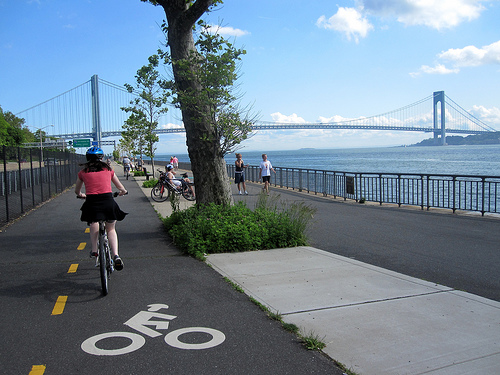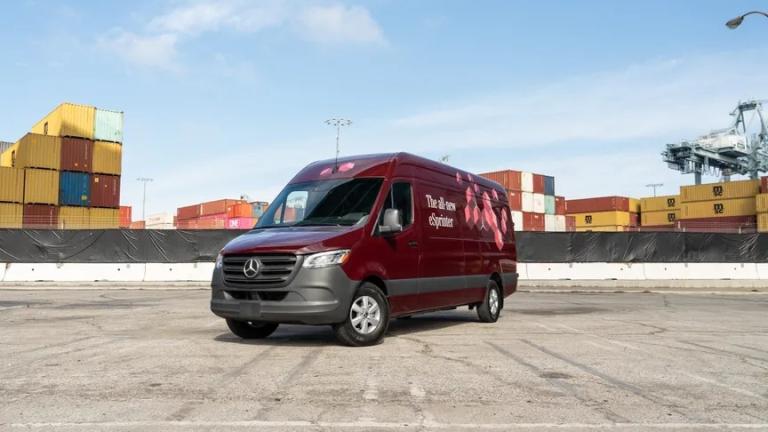What the hell, do you not see that a guy needs to park his Jaguar? Jerks.Photo: Chris GoldNew Yorker economics writer John Cassidy thinks bike lanes should be bulldozed so that he has a place to park his Jaguar for free in Manhattan. His argument, in brief: the theft of perfectly good roadways for biking is economically unsustainable car oppression. Not surprisingly, this has generated a lot of fuss — not just among the groups he mocks in the piece, like humorless bikeophiles and snooty Park Slope co-op members, but also among serious economists. Who are perhaps being a little less serious than usual, because frankly this argument is silly.
Anti-bike rhetoric = Tea Party rhetoric?: Adam Sternberg at the New York Times‘ 6th Floor blog notes the similarities between Cassidy’s argument and another historically logic-resistant group.
As an occasional cycling commuter, I’m always struck (no pun intended) by the extent to which arguments like Cassidy’s mirror the rhetorical tactics of the Tea Party. (No small accusation, I understand.) For example: The appeal to an imagined golden age of yesteryear (gamely dodging cabs; Thunderbird coupes); the specter of bureaucracy run amok (the scourge of the faceless road swipers); reliance on dismissive shorthand (Park Slope co-op members); and, most strikingly, warnings of a creeping, foreign-based anti-Americanism that’s plainly contrary to our core values (They Came on Bikes From Beijing).
Please stop calling this economics, thanks ever so: The Economist is politely and entertainingly furious that Cassidy couches part of his argument in economic terms — spuriously, as it turns out:
I hate to belabour the point, but driving, as it turns out, is associated with a number of negative externalities (Mr Cassidy, being an economics writer, will know the term). When Mr Cassidy drives, he imposes a small congestion cost on those around him, drivers and cyclists included. Because he and others do not consider this cost, they overuse the roads, creating traffic. Mayor Michael Bloomberg had hoped to address this problem by adopting a congestion pricing programme in Manhattan, but he was unable to generate the necessary support. As a result, there are too many cars on New York’s streets. From an economic perspective.
You think bike lanes make it hard to park? Try cars: Ezra Klein breaks down the economics argument a little more simply and less Britishly: The more people choose bikes instead of cars, the easier it is for drivers. It is ALL about the Tragedy of the Commons up in here:
There’s no further room for roads in Manhattan or its environs, but given the city’s comfort with tall buildings, there is room for more people. If each and every one of them decides to buy a car, as Cassidy has, the streets will become essentially impassable. The question, for drivers, is one of survival: How do you persuade the maximum number of New Yorkers not to drive?
Revenge of the bipeds: And Felix Salmon at Reuters points out that Cassidy may have (understandably) mistaken the Earth’s dominant lifeform:
“I view the Bloomberg bike-lane policy as a classic case of regulatory capture by a small faddist minority intent on foisting its bipedalist views on a disinterested or actively reluctant populace.”
Yes, you read that right: the New York populace, it seems, is basically comprised of cars, to the point at which bipeds are “a small faddist minority”.


